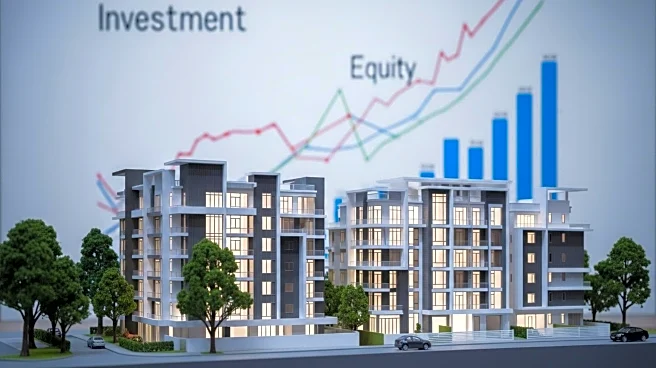What's Happening?
Condos and townhouses have emerged as popular alternatives to single-family homes, offering affordability and reduced maintenance. Over the past decade, both property types have shown significant equity gains, with townhouses slightly outperforming condos recently. This trend is driven by buyers seeking 'house-like' living without the higher costs associated with detached homes. Regional trends indicate that condos have appreciated more in affordable areas like the Midwest and South, while townhouses have excelled in higher-cost regions such as the Northeast and West. Townhouses are favored for their land ownership, fewer restrictions, and lower HOA fees, which enhance resale value. Conversely, condos remain attractive in urban markets with high demand and limited land availability, such as Miami, New York, and San Francisco.
Why It's Important?
The appreciation of condos and townhouses highlights the evolving dynamics of the U.S. housing market, influenced by affordability challenges and regional economic conditions. For potential homeowners and investors, understanding these trends is crucial for making informed decisions. Townhouses offer steady growth potential due to their appeal to a broader buyer base and lower associated costs. Meanwhile, condos can yield strong returns in urban areas with high demand. The choice between these property types can significantly impact long-term wealth accumulation, emphasizing the need for strategic financial planning. This development affects real estate investors, potential homeowners, and the broader housing market, as it reflects shifting preferences and economic realities.
What's Next?
As the housing market continues to evolve, potential buyers and investors will need to closely monitor regional trends and market conditions. The ongoing demand for affordable housing solutions may further influence the appreciation rates of condos and townhouses. Additionally, hidden costs such as maintenance expenses and special assessments could impact equity gains, underscoring the importance of thorough financial planning. Stakeholders, including real estate developers and policymakers, may need to adapt strategies to address these trends and meet the changing needs of the housing market.









